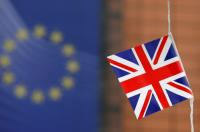 Add My Company
Add My Company
Sign In

Well now we know the answer. But what does yesterday’s decision to leave the European Union mean for UK energy policy and what impact will it have on domestic consumers and our customers.
What have EU green energy targets ever done for the UK?
The EU Renewable Energy Directive (RED) has been the main policy instrument to drive carbon reduction from the energy supply system. It has been the target of lots of criticism from campaigners opposed to wind farms. The directive requires the UK to generate 15 per cent of its energy from renewable sources by 2020 – an increase from just three per cent when the directive was adopted in 2009. The directive applies not only to electricity generation but also to energy used in heating and transport.
To hit the target, the UK needs to generate 30 per cent of its electricity, and 12 per cent of its heating and 10 per cent of transport energy from renewable sources.
In 2014, the EU’s green targets were extended to cover the period to 2030. The UK resisted efforts to make these targets binding and instead, the EU has agreed a target for cutting carbon emissions across the continent by at least 40 per cent from 1990 levels by 2030. How that target will be divided between member states and how they will be met is still to be decided.
What do the targets mean in practice?
In the electricity sector, the RED is one of the reasons why the Government has backed the rapid expansion of renewable power sources. In 2010 seven per cent of UK electricity came from renewable sources; by 2014 that rose to about 18 per cent.
In the heat and transport sectors, it is much less clear that the UK will meet its targets and as a result may miss the overall RED target. Renewable heating usually involves replacing oil or gas boilers with biomass boilers, or a ground source heat pump system of the sort that we install for our customers. Those who have followed this sector will know that UK Government policy in this area has gone slowly and intermittently.
In transport, about five per cent of road fuels currently comes from biofuels. Ministers have not decided whether to try and increase that level or to focus on driving for the electrification of vehicles. In isoenergy we believe that the electrification of vehicles is an obvious growth area and are starting to look what that will mean for how the infrastructure will need to change.
In the longer-term, the 2030 emissions reductions targets will require a continued switch to low-carbon energy sources and greater energy efficiency.
Will Brexit mean an end to all that?
Probably not.
In the short term withdrawal from the EU may allow the Government greater freedom of action. It may be possible for a UK Government, especially if it is as sceptical on climate change as it will be on the EU, to take some easier options on heat and transport policies in the short-term. The UK will no longer be obliged to hit the RED target for 2020. But probably Government policy will have to recognise the international treaty obligations they have undertaken at the Paris climate change conference and elsewhere and continue on the route of decarbonising the economy.
When it comes to renewable electricity, most of the projects needed to hit the 30 per cent goal have already been granted planning permission and subsidy contracts because of the long lead times on these kinds of project.
After 2020, Brexit appears unlikely to make a difference to UK energy policy unless a new Government takes a very different approach to energy policy. The Westminster Parliament has passed the Climate Change Act which imposes even tougher requirements for cutting carbon emissions - the UK must cut its carbon emissions by 80 per cent on 1990 levels by 2050. Changing this will require an Act of Parliament and possibly derogation from treaty obligations. It is probable that a new Government will have other priorities.
So, yesterday’s decision is likely to make little difference in the long run to the UK’s energy policy. However, in the short term the Government has greater freedom of action to set its own course and therefore has some room for manoeuvre. We know that they are consulting on the future of the Renewable Heat Incentive. Given their financial constraints it is very unlikely that the consultation will make the incentives more attractive, and some of the options they are considering will limit its scope greatly. So if you have been thinking of installing a renewable energy system, the time to do it is now after the uncertainty of the referendum has been resolved and before next Easter when changes to the RHI are likely to be implemented.
For more information on To Brexit or not to Brexit, that was the question talk to ISO Energy Ltd
Enquire Now
List your company on FindTheNeedle.
